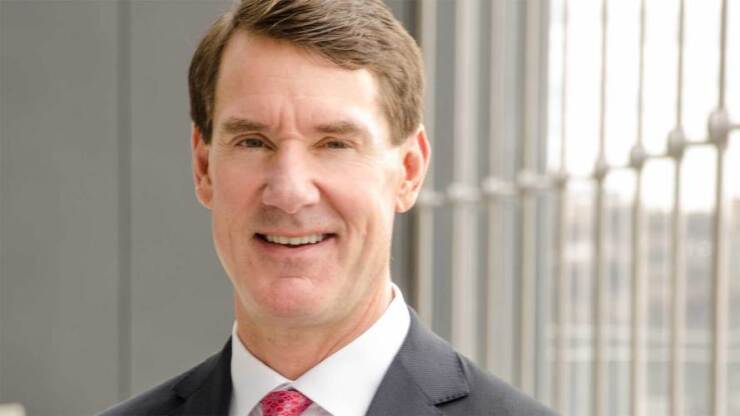PNC Financial Services Group powered ahead in the third quarter, capitalizing on rising interest rates to bolster revenue and earnings.
Interest-earning assets — including investment securities and loans — generated more income following multiple Federal Reserve rate hikes this year. This more than offset weaker fee income and gradually rising funding costs as securities and variable-rate loans reset faster than deposit rates. PNC's total loans increased 9% from a year earlier to $315.4 billion.
Yet with deposit costs creeping up, PNC Chairman and CEO Bill Demchak was asked if net interest income can continue to rise: "Yes," he responded instantly during a call with analysts after the Pittsburgh company posted results Friday.
"We make lots of money when rates go up or even if they stay just where they are here," Demchak said.
Chief Financial Officer Robert Reilly said the $559 billion-asset company's interest income should climb further in the fourth quarter, with more runway ahead in 2023, supporting continued net interest margin expansion as well.

"In terms of the margin, we saw a nice increase, obviously, in the third quarter," Reilly said on the earnings call. "We won't see that equivalent jump necessarily in the fourth quarter, but as the Fed continues to raise rates, we will continue to see some margin expansion."
PNC reported third-quarter net interest income of $3.5 billion, up from $2.9 billion a year earlier, before the Fed's rate hikes. The bank's NIM of 2.82% was 32 basis points above the prior quarter and 55 points above the year-earlier quarter.
Analyst Gerard Cassidy of RBC Capital Markets said PNC's "strong underlying results" were clearly driven by the interest-income gains.
With mortgages and other rate-sensitive business lines under pressure, he noted, fee income tapered notably. Third-quarter noninterest income totaled $2.1 billion versus $2.3 billion a year earlier.
Reilly said that, gradually, higher deposit costs would slow the pace of net interest income growth.
Average third-quarter deposits were $439 billion. Of that total, 68% were interest-bearing and the rest were checking and other accounts that do not require interest payments to customers. Interest-bearing accounts gained about 2 percentage points of the total share when compared with a year earlier. And the average rate paid increased to 0.45% from 0.04% a year earlier, the bank said in a presentation.

Reilly said the trend toward interest-bearing accounts would likely continue and funding costs will rise further as a result. But he said the bank anticipates that interest income on securities and loans will continue to outstrip funding costs, bolstering future earnings.
PNC also said credit quality shows no indication of trouble. Net charge-offs as a percentage of average loans were 0.15%, compared with 0.11% a year earlier.
However, PNC's view may not provide a clear read-through for the industry.
While there will be exceptions, Peter Torrente, KPMG's U.S. national leader for banking and capital markets, said investors are beginning to expect the combination of rising rates and enduring inflation will hinder banks' earnings as soon as the fourth quarter.
"Against the backdrop of economic headwinds, the solid earnings reports from this morning will quickly pass into the rearview mirror," he said in an email Friday. "Worries of inflation, which shows little sign of slowing down, are casting a long shadow on future outlooks. … Next quarter and beyond credit risk, loan growth and deposit balances will be key areas to monitor in the banking industry."
PNC said third-quarter net income rose to $1.6 billion, or $3.78 per share, compared with $1.5 billion, or $3.30, a year earlier. Analysts surveyed by FactSet were looking for EPS of $3.71.
Revenue rose to $5.55 billion from $5.20 billion a year earlier, beating analysts' average forecast of $5.42 billion.





